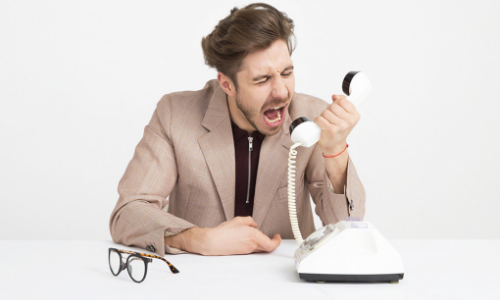Overcoming procrastination and bad habits are essential in order for us to flourish with confidence. Having confidence is one thing, but combating the enemies to building confidence- procrastination and our habits- are another story.

What is Confidence?
Mel Robbin’s explains confidence is “the willingness to listen to yourself, to believe in your instincts, and to trust your inner wisdom. It’s the skill of believing in and listening to yourself.” Confidence applies to everyone in all realms of healthcare, from the janitor of your office to the CEO.
Having confidence in the workplace is paramount. Not only is it the key to success, but it also is the foundation for productivity. Confidence can help better decision making and problem-solving. It helps to advance the intellectual of employees which can help better handle different situations and deal with various matters.
When an individual is confident in their workspace, they are more likely to be effective communicators. Being an effective communicator helps contribute to the increase in ability to effectively problem solve. Clear communication is crucial for relationships and a thriving business environment. The more confident you are, the more effectively you can communicate and influence others.
Two of the biggest enemies to confidence are procrastination and poor habits. If we want to be confident, we need to address and terminate the practice of procrastination and put an end to our habitual routines that aren't serving us.
Why Do We Procrastinate?
Before jumping to the conclusion that procrastination is rooted in laziness, understand that procrastination is actually a safety mechanism. It’s not a reflection of one’s attitude, work ethic, or competence, rather, it’s the brain signaling to the body that something is stressing us, and procrastination kicks in trying to help us cope. Its our bodies reaction and safety mechanism. Whatever we are procrastinating is linked to something that is causing stress that our subconscious is trying to escape.
So, how do we fix it?
Developing a self-awareness of why you procrastinate is a great place to start. Self-awareness and taking personal inventory on stress can help you identify ways to alleviate it, rather than add more to it. Robbin’s suggests identifying if the stress is coming from a real threat or a perceived one. Also, it could help considering the worst case scenario that you’re fearful of. These can help identify the real root of the stressor and help better find a solution to combat the stress.
The more weight of stress you eliminate, the more proactive and productive you can be.
Taking the first step to end procrastination and diminish stress can be a daunting one. But the first step is what will be the hardest. Robbin’s presents the principle of momentum, which is rooted in science, to describe this phenomenon perfectly. Basically, the initial action, or initial amount of energy required to start a reaction, is the most difficult. She describes "the activation energy,” as being "significantly higher than the amount of energy required to keep it going.” This concept is the same in life. You need to have one strong initial push to get past your resistance. This activation energy mostly will not show up at your doorstep ready to go and get you motivated. This energy is more like trying to get front row at sold-out concert. There’s going to be quite the amount of resistance to trek through, and you’ll probably be pushing and getting pulled in all directions. It will take a lot of effort, but when you do get there, the end result will be worth it.
When Procrastination Becomes Habit
We spend 40 percent of our day living in autopilot mode. When you are on autopilot, you are operating solely out of habit. Our brain thinks it is doing a favor for us, it thinks it is helping keep us safe. Our brains like to protect us from anything that is difficult, scary, or unknown. For the most part, this is doing us a disservice. Few people have habits that radiate excellence and progression. For the most part, our habits aren’t serving us. One habit in particular is especially sneaky. It’s one we all possess and fall victim to. It starts budding in super subtle ways that we don’t catch onto early. This is the habit of hesitating.
If we hesitate, even for a brief moment, it sends a stress signal to the brain. When the brain recognizes the hesitation and stress, it starts working overtime to protect us. One of the protection mechanisms it uses is called the "Spotlight Effect". In essence, the brain magnifies risk to get us to pull back and seek safety from whatever we perceive as a problem. Interestingly enough, we can use the spotlight effect to help us retrace our steps and identify the root of the problem. Robbins states we “can truly trace every single problem or complaint in your life to silence and hesitation, those are decisions.”
We must change our habits in order to radiate with confidence. Replace the habit of hesitation with the habit of courage.
Tools for Fixing Bad Habits and Procrastination: Use Mel's 5 Second Rule
Mel Robbin’s “Five Second Rule” can help us overcome procrastination and the habit of hesitating. She encourages making instant decisions and acting on them. We can also form a habit of courage using her rule. Whenever you get the thought or urge to do something that will help you get closer to your end goal, you must act on that within five seconds. If you wait longer, it will never happen. This is because your body and brain will talk yourself out of it. This goes back to procrastination acting as a safety mechanism and stress blocker.
The science behind this is fascinating. When you make a snap decision to act on your urge, it is activating your prefrontal cortex. The prefrontal cortex is the front-most part of your brain that is responsible for decision making. You need to act within the five seconds because of our natural instinct to resist change.
We all have the urge to engage in a negative habit, resist, or quit. This urge doesn’t go away overnight, and if you have these negative urges, it doesn’t mean you’re a failure. Robbin’s introduces another phenomenon backed by researchers called “The Golden Rule of Habits.” This is where you replace the negative behavior, that would often follow an urge, with a more positive behavior. This further reinstates the importance of making a choice and acting on it within the five seconds, not making a choice and then thinking about it. Not only will you be able to rid old habits and procrastination, but you’ll be able to achieve your goals.
In summary, keep striving for improvement. Making progress, whether it is monumental or seemingly insignificant, is the key to productivity and happiness. Take control of your life and work mentally. You can find this will help dwindle bad habits and procrastination. Try adopting the "Five Second Rule" into your decision making process. You will find increased confidence and success.



